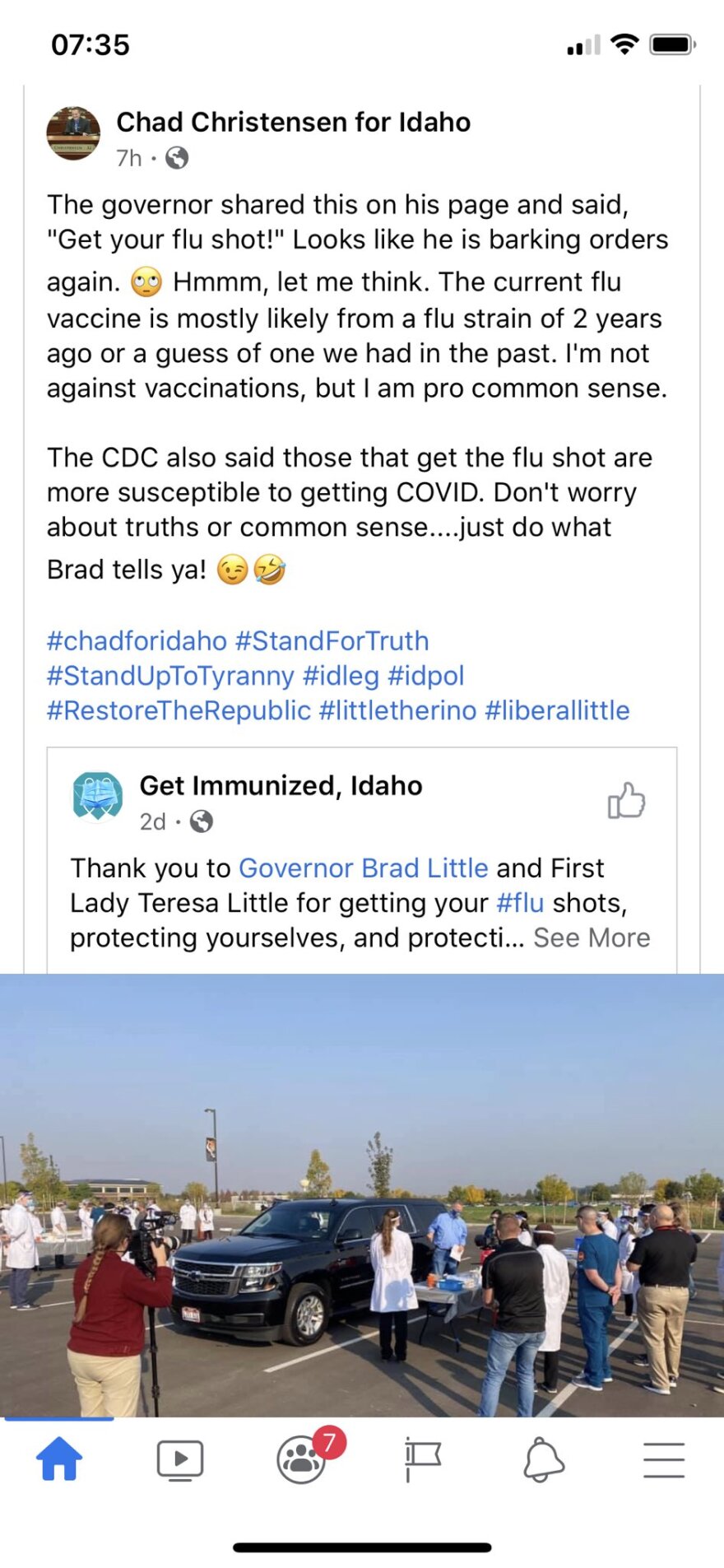Misinformation about the flu vaccine is spreading as public health officials are organizing to protect bed space at hospitals this winter amid the coronavirus pandemic.
Doctors have been telling people for months to get a flu shot. They’re typically between 40-60% effective at preventing the flu with few side effects, according to the Centers for Disease Control and Prevention, and lessen the severity of the illness if a person still gets it.
But in response to Gov. Brad Little promoting a vaccine drive over the weekend, state Rep. Chad Christensen (R-Ammon) in a Facebook post erroneously claimed that the CDC said a flu shot increases a person’s chances of getting COVID-19.

“There are, in my mind, always some crazy ideas about vaccines or their effectiveness or their relationship to other diseases,” said Dr. Kenny Bramwell, medical director at St. Luke’s Children’s Hospital. “This is the most recent idea that’s really just unfounded.”
Bramwell said he hadn’t heard of this particular rumor before being contacted by Boise State Public Radio on Tuesday.
It’s unclear where Christensen got his inaccurate information. He didn’t respond to requests for comment, but he later corrected his post.
For its part, the CDC has taken on the rumor. One study published in January suggested that someone who got a flu vaccination could be more at risk for contracting coronaviruses – a family of viruses that also cause the common cold and have been around for decades.
In May, the author wrote a letter explicitly saying that the novel coronavirus that causes COVID-19 was not one of the viruses included in his study and that no one should extrapolate his conclusions to include it.
His findings and methodology have also been questioned by other researchers who’ve done similar studies as to whether the flu vaccine can leave a person susceptible to other illnesses.
Another source for a similar rumor came from a Fox News appearance by Dr. Mehmet Oz on Fox News in September in which his spokesperson told the Associated Press that his words were misinterpreted toward the end of the interview.
That’s why, Bramwell said, it’s important for people to get their information from reliable medical sources and not social media.
“It’s your circle of friends and maybe their friends, but it’s not anything that I would put a whole lot of faith in.”
There’s another reason to get a flu shot during the pandemic, too. State epidemiologist Dr. Christine Hahn, said it not only protects the person and their family, but also keeps hospital beds open for coronavirus patients when fewer people are sick.
“We’re not all crowding into these health care settings, but also we’re keeping those beds available if the COVID should get worse and they need those beds,” Hahn said.
Elevated hospitalization rates have been a key factor in keeping Idaho in Stage 4 of Gov. Brad Little’s reopening plan for months now. They’re also a lagging indicator of how severe outbreaks of COVID-19 are, as cases have spiked over the past two to three weeks.
After a slight decline from their peak in August, more beds statewide are beginning to fill back up just as the flu season begins.
Follow James Dawson on Twitter @RadioDawson for more local news.
Copyright 2020 Boise State Public Radio
Member support is what makes local COVID-19 reporting possible. Support this coverage here.



